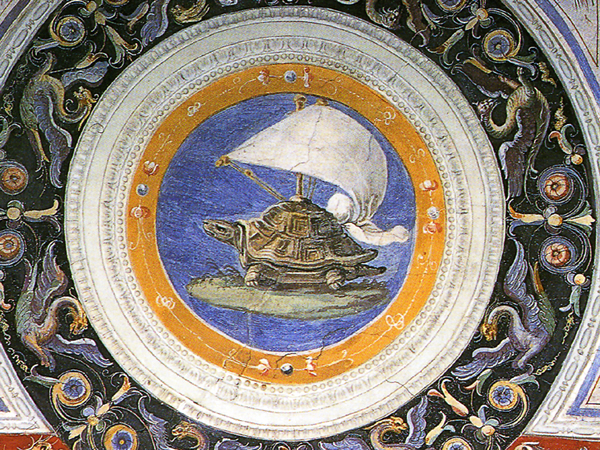All throughout history, humans have tripped over their own feet, left food out to spoil, and made general muddles of things. In order to bring some order out of this incompetent chaos, adages were coined, short, memorable sayings to pass on to the next generation that they might avoid repeating the errors of their forefathers.
In 1500, a scholar-priest from Rotterdam threw up his hands, grabbed a quill, and set to work creating a Grand Poo-bah of a proverbial collection called “Adagia”. It included thousands of Greek, Roman, and English adages, some of them straightforward (What’s done cannot be undone), others more enigmatic (To call a spade a spade). Many are continued today in popular songs, awkward silences, and hectoring of the youth.
- In the land of the blind, the one-eyed man is king
- A necessary evil
- The grass is greener over the fence
- To die of laughing
One, at least, was allegedly taken from the Emperor Augustus: “Festina Lente” meaning “Make haste – slowly.” Though it is out of common use today, important men would make it their motto, and like “carpe diem” it was carved into the stones of monuments.




While all Erasmus gave us were golden words, Augustus also left behind real, solid gold. Following the example of his adopted father, the dictator Julius Caesar, the new emperor printed coins with his own head and a custom design on the tails side, significant for its daring, since before Caesar the faces of coins had been reserved solely for the dead or deified. Augustus decorated his coins with cows, trophies, goddesses, and chariots -the basics – but one of his issued coins, the radiant aureus, bore a much stranger image: a crab clasping in the tips of his claws a fluttering moth.

There was some head scratching until scholars came across Suetonius, the prolific historian who recorded the lives of twelve Caesars. He just happened to mention that Augustus’ favorite saying was “Festina Lente.” For lack of any better explanation, the crab has been taken to symbolize caution and the butterfly haste, creating a pictorial representation of the Latin motto.
As we can observe Augustus’ considerable legacy even up to present times, we might do well not to take words lightly. Living by this simple maxim, he won the whole world. In the end, all his aurei melted down into a colossal lump are worthless compared with his actions which stemmed from his principles and convictions. Adages not only caution the youth but inspire them to greatness. Walking in the footsteps of giants, devouring the libraries of kings, rectifying situations with time-tested words, we humans make history.
